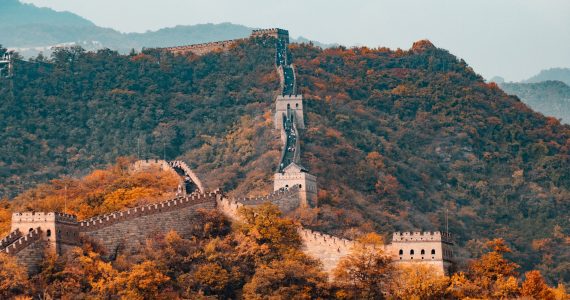
CHINESE FOREIGN POLICY AND MORALITY
China’s ascension could be the most important political development of the 21st century. The ruling Chinese President Xi Jinping has established progressive guidelines through the “Chinese Dream,” which by 2049—100 years after the founding of the People’s Republic of China—is meant to turn China not only into a modern socialist country, but also the leading global power, in front of the USA.
The so-called “New Silk Road Project” is a manifestation and symbol of China’s geopolitical ambitions. The project foresees China investing a trillion dollars for infrastructural projects in Asia, Europe, Africa, and South America. China wants to use pipelines, power plants, and a network of streets, railroads, ports, and airports along the former Chinese trading routes in order to tie the states along the ancient silk road to itself.
In many ways, China is pursuing its ambitious plans with an interesting strategy. Especially interesting is the moralistic undercurrent China has given its foreign policy. This is particularly evident in the words of the former Chinese President Hu Jintao, who said that the primary goal of China’s foreign policy is to promote peace and humanitarian development. Within that context, Yan Xuetong, a professor for political science at Tsinghua University in Beijing and one of the leading Chinese experts for international policy, explained that one of the leading goals of foreign policy is to improve a nation’s image. However, this isn’t possible without an actual moral authority. Yan Xuetong referenced the Marshall Plan, with which the USA was able to help a war-torn Europe get back on its feet after WWII, and how it’s the perfect example of how a country can win moral authority.
Of course it’s true that China’s foreign and geopolitical policies have the principal goal of helping itself. These expensive contracts are essential to the highly-indebted Chinese construction, steel, and transport industries so that they can continue employing millions of workers. However, more and more developing countries are turning to China as a model for successful development and hoping to be able to profit from China’s investments and know-how. This has a lot to do with the fact that China now understands how to secure its pragmatic approach to economic win-win diplomacy—which in contrast to the USA doesn’t place any political or economic conditions on countries receiving investments and aid projects—with a political presence that, in the eyes of many developing countries, gives China an exalted moral position in comparison to western states. China presents itself as a country that managed to free itself from the chains of oppression created by western imperialists and successfully stand on its own two legs without bowing down to western standards. Within this context, China appears as a generous helper that understands the short-term needs of developing countries better than the west does. It’s a position that naturally generates a lot of sympathy.
China’s Communist Party has understood that it needs to rely on this kind of “soft power” in order to move away from its “partial power” status, as David Shambaugh called it, and take over the USA’s role as a leading global power. It will remain interesting to see whether China will be able, beyond intelligent rhetoric and economic cooperation, to culturally dominate the world in the way the USA has for the past decades.
Disclaimer: The views and opinions expressed in this article are those of the author and do not necessarily reflect the opinion of IFAIR e.V. or its members.

Eimen Hamedat
Eimen Hamedat has studied Social Sciences with a focus on Political Sciences at the RTWH Aachen University and RMIT University in Melbourne. He has interned with the European Parliament in Brussels and the German Parliament in Berlin. Currently, he is pursuing a MBA degree.
